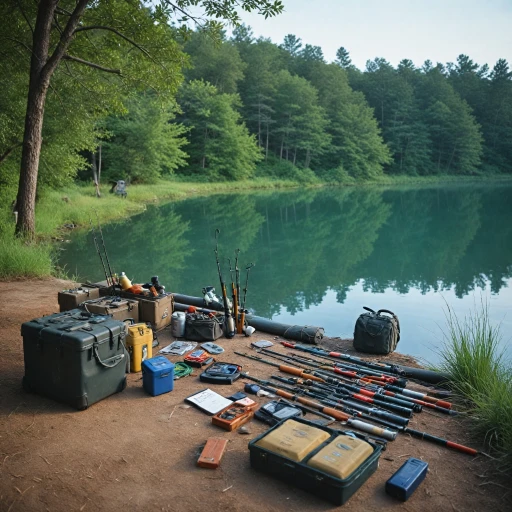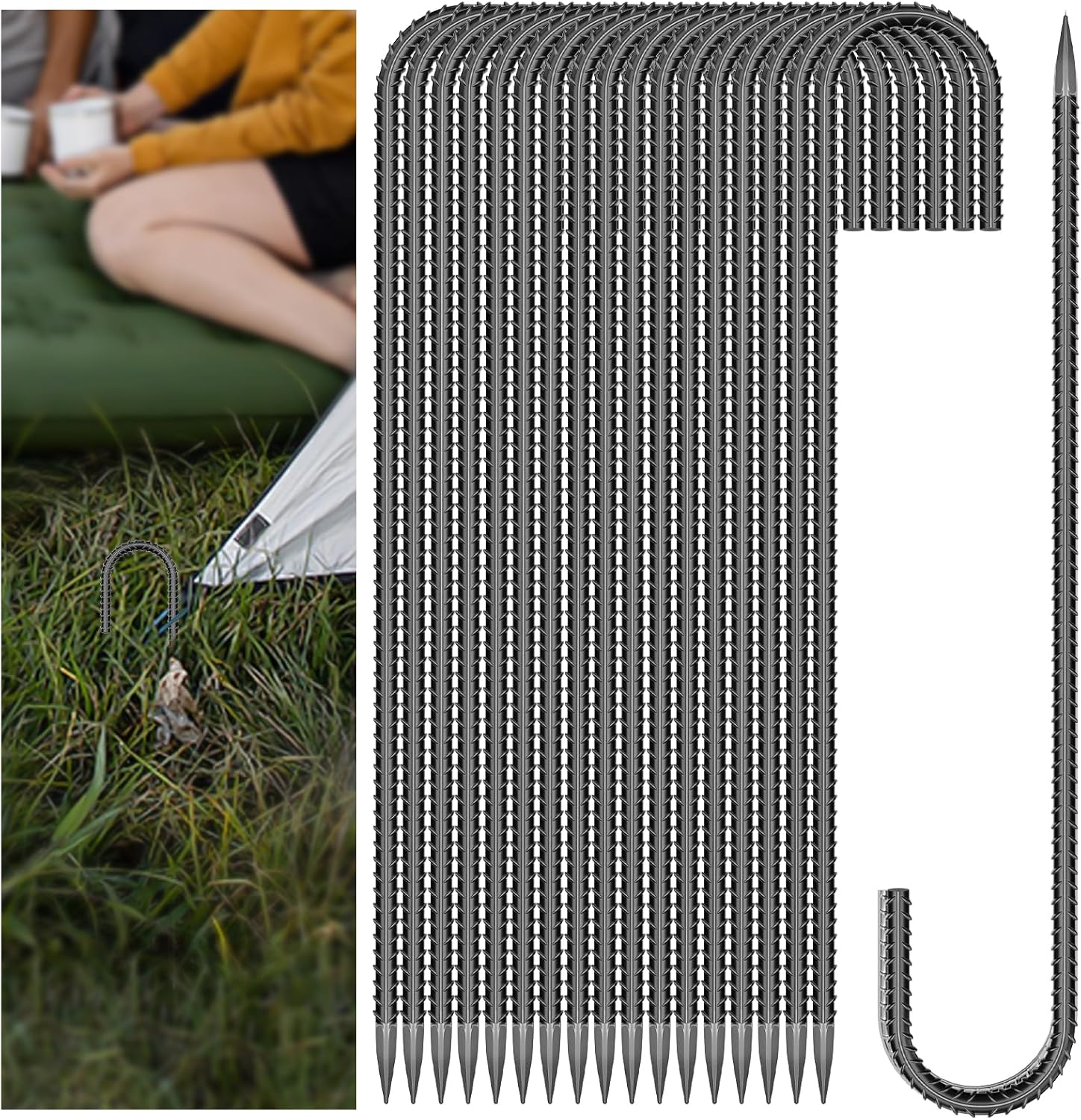
Understanding the Design of J Hooks
The Anatomy of J Hooks
J hooks are a staple in the world of recreational fishing, known for their classic design and versatility. The name 'J hook' comes from its distinct shape, resembling the letter 'J'. This design is not only iconic but also functional, allowing anglers to secure their catch effectively. The hook's curve and point are engineered to penetrate and hold onto fish securely, making it a reliable choice for many fishing enthusiasts.
When selecting J hooks, it's important to consider the materials used in their construction. Many J hooks are made from galvanized steel, which offers rust resistance and durability. This is particularly beneficial for those who fish in saltwater environments, where corrosion can be a significant concern. Additionally, some hooks are available in stainless steel, providing an extra layer of protection against the elements.
J hooks come in various sizes and strengths, often packaged in hooks packs for convenience. These packs can vary in price depending on the quality and quantity of hooks included. For those looking to save, purchasing in bulk can be a cost-effective option. It's also worth noting that some J hooks come with a hook retainer, which helps in managing cables and keeping your fishing gear organized.
For anglers interested in exploring more about fishing gear versatility, you might find this resource on missile baits insightful. Understanding the different components and features of J hooks can enhance your fishing experience, providing you with the right tools to tackle various fishing scenarios.
Benefits of Using J Hooks
Advantages of Implementing J Hooks in Fishing Gear
J Hooks offer several benefits that make them a popular choice among recreational fishermen, thanks to their reliable performance and timeless design. Here are some key advantages to consider:
- Versatility Across Species: J Hooks can be used effectively for a wide range of fish species. Their simple yet effective design allows anglers to rely on them in various fishing environments.
- Ease of Use and Affordability: These hooks are known for their straightforward use, making them an excellent choice for beginners. The price of a pack of J Hooks is generally cost-effective, allowing fishermen to maintain an ample supply without breaking the bank.
- Durable Construction: Made from high-quality materials like stainless steel and galvanized steel, J Hooks are designed to withstand the harsh elements of freshwater and saltwater environments. This rust-resistant property ensures longevity and reliability.
- Variety of Options: J Hooks come in different sizes and price ranges, offering options for every fishing scenario, from light-duty applications to heavy-duty catches.
- Convenient Storage: For those looking to organize their tackle efficiently, J Hooks are available in various storage products like wall mounts and garage storage hooks, allowing for streamlined access and management.
While exploring the benefits of using J Hooks, you might also consider Big Bite Baits fishing gear to enhance your overall fishing experience.
Choosing the Right J Hook for Your Needs
Adapting J Hooks to Your Fishing Needs
Choosing the right J hook is crucial to maximizing your fishing success and ensuring that you have the correct equipment for your specific fishing environment and target species. With a plethora of options available, here’s what you need to consider:- Material and durability: Consider hooks made from galvanized steel or stainless steel for their rust-resistant properties and durability. These are especially useful if you are fishing in saltwater environments, where corrosion can be an issue. A zinc finish can also enhance durability, ensuring your hooks last longer.
- Size and strength: When selecting a J hook, pay attention to its size and the hook retainer strength. For larger fish, you may require a heavy-duty hook that can withstand the pressure without bending or breaking. Those designed for structured cabling systems, like heavy-duty cable hooks, often provide the necessary strength.
- Pack options and pricing: J hooks vary in price and are typically available in packs. You can save on price by purchasing in bulk, especially if you fish frequently. Look for a hooks pack that offers a good balance between quantity and value.
- Storage and organization: To maintain the longevity of your J hooks, proper storage is vital. Use wall mount hooks or garage storage systems to organize and protect them from damage. Some anglers use systems designed for cable management or even ceiling beams to ensure their hooks are kept in pristine condition.
- Versatility: Consider hooks that can accommodate various fishing lines and setups. Whether you're using a steel cable or a monofilament line, having a flexible hook option that supports different configurations ensures versatility across different fishing scenarios.
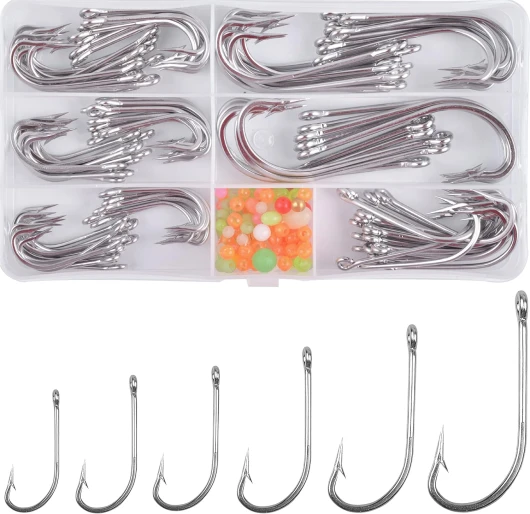
- + Extra strong stainless steel construction
- + 130 pieces for bulk usage
- + Versatile for both saltwater and freshwater fishing
- + Long shank design for better hook sets
- + Includes fishing beads for added attraction

Comparing J Hooks to Other Hook Types
J Hooks in Contrast to Other Fishing Hooks
When comparing J Hooks to other types of fishing hooks, it's essential to understand their distinct features and benefits that set them apart. Here's how they stack up against other popular hook types:- Design Versatility: J Hooks offer a unique bent shape that supports a variety of fishing techniques. This versatile design makes them a staple in any angler's tackle box, unlike circle hooks which are typically used for specific catch-and-release methods.
- Range of Options: Available in multiple sizes and strengths, J Hooks accommodate different fishing environments and target species, whereas more niche hooks might have limited applications.
- Material Durability: J Hooks often come in materials such as galvanized steel and stainless steel, offering rust-resistant qualities that increase their longevity. This durability is in contrast to some other hooks that might require frequent replacements, especially in saltwater conditions.
- Cable Management Integration: While this feature is more aligned with structured cabling than fishing, understanding the similar principles of organization and storage can improve your fishing gear management. Like using a heavy duty, wall mount hook to keep cables tidy, having a structured way to store your fishing hooks can save time and extend product life.
- Affordability and Convenience: J Hooks can often be purchased in hooks pack formats, providing cost-effective and convenient options for recreational fishermen. This contrasts with specialized hooks that might come at a premium price without the pack advantage.
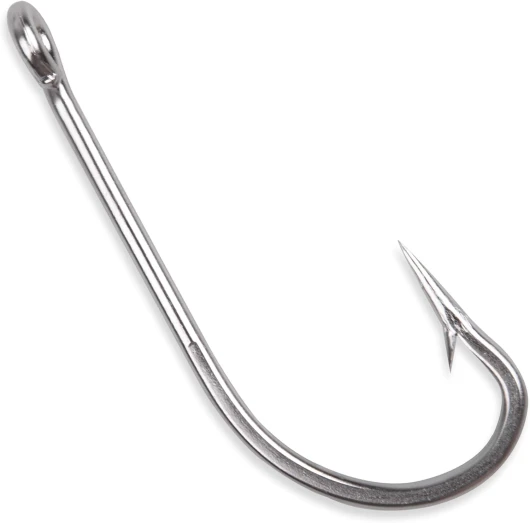
- + Durable stainless steel construction
- + Includes 50pcs for great value
- + Forged long shank design for better performance
- + Extra strong metal for heavy-duty use
- + Available in size 1/0 to 10/0 for various fishing needs

Tips for Using J Hooks Effectively
Mastering the Art with J Hooks in Recreational Fishing
J hooks have earned their spot among the most popular hooks for recreational fishing, thanks to their versatility and effectiveness. To make the most of these hooks, it's essential to know how to use them effectively.
- Rigging Techniques: Proper rigging is crucial for maximizing the catch rate with J hooks. It’s important to use quality cables and supports to secure your equipment, ensuring the hook remains stable during the cast and doesn’t get tangled.
- Choosing the Right Material: Depending on the fishing environment, a galvanized or stainless steel hook is preferred for its rust-resistant properties, especially in saltwater fishing. This choice helps extend the lifespan of your fishing gear while maintaining performance.
- Setting the Hook: Timing is key when setting the hook. It requires a good understanding of fish behavior and the right moment to strike. Practice patience and attentiveness to become adept at this technique.
- Using Storage Solutions: Organizing your hooks with heavy duty storage hooks or wall mounts ensures easy access and prevents damage. Utilizing cable management aids in keeping your fishing area organized and efficient.
Utilizing the tips above while keeping in mind that each J hook product may have specific pros and cons can significantly enhance your fishing experience, ultimately leading to a more successful day by the water.
Common Mistakes to Avoid with J Hooks
Avoiding Common Pitfalls with J Hooks
For those who are new to using J hooks, or even seasoned anglers, there are a few common mistakes that can affect your fishing success. Avoid these pitfalls to make the most of your fishing adventures.
- Underestimating the Hook Size: Choosing the wrong size can compromise your chances of landing that prized catch. Larger fish require larger hooks, while smaller species need more appropriately sized hooks.
- Ineffective Hook Attachment: Make sure your hook is securely fastened to your line. Utilizing a hook retainer can prevent your hook from coming loose during the retrieval process.
- Lack of Proper Storage: Proper storage is essential to maintain the integrity of your hooks. Consider using storage hooks made from galvanized steel for their rust-resistant properties, ideal for humid environments like garage storage or tool sheds.
- Neglecting Hook Maintenance: Over time, hooks can become dull or corroded. Regularly inspect your hooks and replace them as necessary. Investing in a hooks pack can be a cost-effective solution.
- Improper Cable Management: When using steel cable or power racks, ensure your lines are free of knots or tangles. Efficient cable management will support smooth casting and retrieval.
By steering clear of these common errors, you enhance your fishing efficiency, ultimately making your recreational fishing experiences more successful and enjoyable. Whether mounting cable hooks on wall mounts for organized storage or choosing heavy duty steel for lasting durability, every detail contributes to a more rewarding fishing journey.

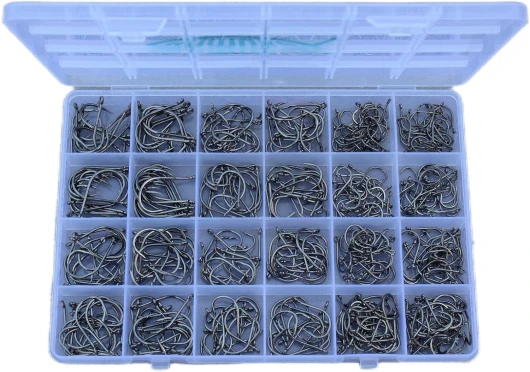
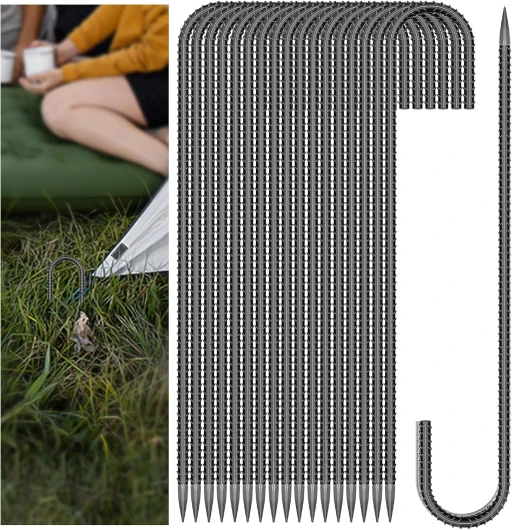

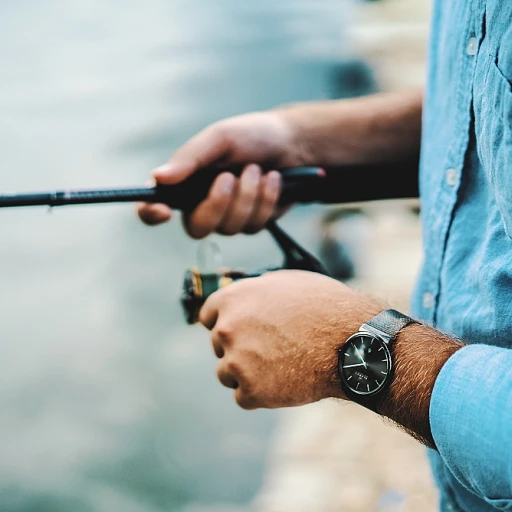
-large-teaser.webp)









